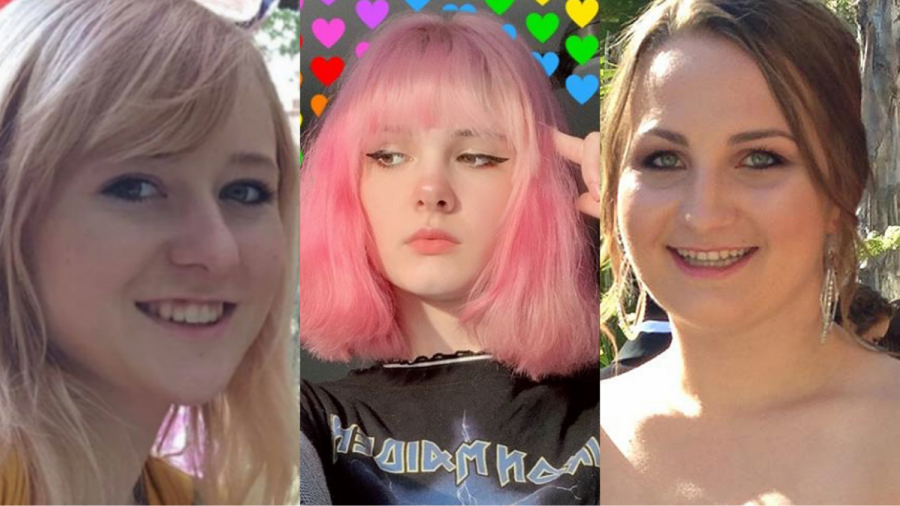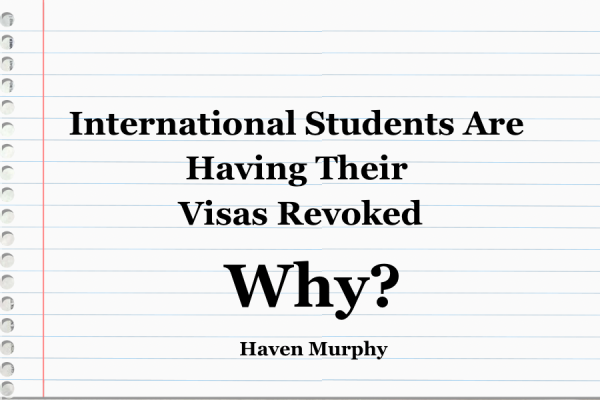Rejection Violence
Trigger Warning: Suicide, Murder, Kidnapping, Mentions of Sexual Assault
At 6 AM on July 19, 2019, pictures of Bianca Devin’s mutilated dead body spread across the internet on platforms such as Reddit, 4chan, Instagram, Twitter, and Discord. Almost like wildfire, her name and whatever could be associated with it were in the mouths and in the posts of thousands of people, whether they knew her or not. People who were hungry for information asked for whatever videos, pictures, and testimonies they could get. Luckily for them, the majority of the information was already online. Theories like a stalker, her boyfriend, or an “incel” or “involuntary celibate” (A misogynistic person who blames their problems on their lack of sexual interactions) murdered her, swirled around on the internet as more and more questions were raised. However, the majority of them were debunked. It has been revealed that her boyfriend, Brandon Clark, killed her because he believed she kissed someone at the concert. Sadly, to this day, those pictures still remain on the web and many people continue distributing them around to people.
Another tragic event occurred on May 23, 2014. Elliot Rodger, a twenty-two year old Youtuber and “incel hero” published his final video and was on his way to execute his long awaited plan. In his apartment, he stabbed all three of his roommates and made his way to a popular college sorority, planning to kill the women inside. Thankfully, he wasn’t able to enter, however, he still craved to quench his blood lust. He shot three women that were outside and nearby. On his way to a convenience store, he shot at some pedestrians and proceeded to shoot the store, injuring some people. To end his rampage, he shot himself.
These are two completely different cases with different outcomes, however there is a hidden tie that lies in both of them. The string that connects the two is rejection violence. Unfortunately, these cases are not unheard of and have been done many times before. Though the majority of them aren’t as intense as the Bianca Devins and the 2014 Isla Vista Killings case, it’s an everyday problem that occurs more than people would realize. Many of them are simple and go unnoticeable, an example being non-consensual sexual advances. More importantly, events like these can occur in schools and to minors from across the nation and even locally.
On 7 AM on Aug. 18, 2019, an AMBER Alert was broadcast to the state of Indiana, listing the name Madison Elizabeth Yancy Eddlemon. Madison was a sixteen year old girl who was allegedly abducted by a twenty-two year old man, Alexander Martin Fishtorn-Curry. Alexander was one of her ex-boyfriends, who has been known to act abusive toward her. After being separated, he had been stalking Madison and threatening her to the point of making her uncomfortable. This caused her parents to file a restraining order against him. The alert lasted for around eight hours, leaving her family worried. Thankfully, she was found safe in Arkansas and has been returned to Crown Point, which is only seventy miles away from South Bend.
All three of the men involved in these cases are intertwined due to a common ideology. In Rodger’s 141 page long manifesto, he states “If I can not have it, I will do everything I can to DESTROY IT.” Here, he is referring to having a girlfriend or having sexual intercourse with a woman. Rodger, Clark, and Curry were all struggling with “keeping a girl to themselves” and the fear of rejection, which caused them to react aggressively. According to a 2018 study, some men show aggression when being romantically rejected. This may be due to their honor beliefs. For example, some comments on Bianca Devin’s Instagram page call her an “idiot” for being a “thot” and blame her for not giving into Clark. Furthermore, people continue to praise Clark and Rodger for “eliminating thots and egirls from society”. Some people believe others are entitled to romance and the negative perception of women who interact with other men or fans. However, this can be applied to all genders. However, not everyone reacts aggressively to rejection.
Most people react to rejection with sadness rather than anger. One Adams high school student that, “I feel like I along with others would react more dejected than aggressive.” He continues with, “I at the very least react more so the opposite [of being aggressive]”. When describing a past experience, other students says that it “feels bad” and that they feel “unwanted, unloved, and alone.” Another student says, “It makes you question why you didn’t get this person and your choices and overall, it’s a feeling of loneliness that really just fills you with despair.” It’s common to feel unhappy because of rejection, however, that does not mean that aggression is out of the question. One student says that she struggled with “a lot of self hate”, but thankfully she is working on fixing it.
According to another 2018 study, the pain of rejection can lead to aggressive behavior. This is because of the motivations of people being rejected, most of which are the pursuit of pleasure and the evasion of pain. Many people choose to project this pain on themselves, which is not the correct way to approach the matter. However, other people project it on others. This can be seen in the Isla Vista killings case. Rodger was driven due his wants for sex and women and how he was unable to pursue it. His internalized pain from constant rejection led him to kill multiple people. Though he is only one example, other people share his experiences and beliefs. When being asked about about harassment from rejection, nine out of twenty four Adams students report being harassed for decline any sexual or romantic advances, which is almost half. Three out of twenty four Adams students report aggressive behavior toward themselves.
Mr. Geissler, the school social worker, has had his fair share of issues related to rejection violence. Out of all of the students who come to him for personal issues, around ten percent are related to rejection violence. He says, “[Relationship violence] is not just romantic. It can be friendships and relationships.” Because of his experience with problems regarding rejection violence, he sees it as “hurt covered up by anger” and believes that “unhealthy relationships will lead to rejection violence.” Thankfully, intense cases of rejection violence aren’t common in John Adams, but it still happens.
Rejection violence is not just physical and can happen to people who don’t suspect it. Mr. Geissler states, “Spreading rumors because of a break up or rejection and killing are not the same, but they’re still violence, physical and emotional.” He’s had experiences where people would spread negative things about someone, try to make a threat, call persistently, post bad things on social media, and unfortunately, stalking. Though he’s never experienced anything as serious as murder or kidnapping, he still believes they are an issue. He says, “What we see in high school are the seeds of what happens later. We see things in the media where the spouse kills and or takes his life. It doesn’t necessarily happen in school but it develops into what can happen.”
Despite this he still believes there is a way to end rejection violence. “The sooner the person realizes to cope with rejection, it will help them down the road.” To people who have been rejected and are struggling with aggressive thoughts, he says, “Relationships at this age are usually very volatile and charged with emotion, and usually the first so its so cataclysmic when it stops. When in reality, when you’re older, you realize that relationships come and go,” He advises to “hang in there” and that “you’ll get through this and you understand and get smarter about who you choose to be with.” To the people who are struggling with with rejection violence, he says, “Everyone has the right to break up with someone, and when one person wants to break up, there will always be a disagreement. But, I will never advise someone to stay in a relationship to stay if you’re afraid of retribution or revenge.”
Rejection violence is a problem that occurs everyday, but doesn’t often get awareness. Despite this, it can be resolved before things get out of hand. If someone knows anyone who is struggling with or showing any signs of rejection violence, they should not be afraid to talk to a counselor or a trusted adult. Some of these people can be teachers and parents.They’ll be able to help resolve whatever conflict is going on. However, if the issue is critical, they should contact authorities before anything bad happens to anyone. By doing this, rejection violence can be prevented and tragic events can be averted. Rejection can be a problem, but every problem has an answer, and violence is never the answer.
Your donation will support the student journalists of The Tower and John Adams High School. Your contribution will allow us to purchase equipment and cover our annual website hosting costs.

Loren Arzadon is a sophomore here at John Adams and this is her first year writing as a reporter for The Tower.
Loren is hardworking and artistic,...







